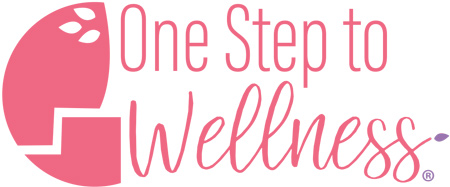“Food addiction” is a complicated and tricky topic no matter how you slice it. I went to a group for many years where the label “food addict” was given to everyone who attended and the assumption was 1) we were all “food addicts” 2) we were all addicted to all food. There was one problem: I knew I wasn’t addicted to broccoli, so this theory didn’t ring completely true for me.
Marc David, Founder of the Institute for the Psychology of Eating says that it isn’t possible to be addicted to “food” because we have to eat. Instead, he suggests we can be addicted to ingredients.
So what are we to believe? Is it all food, or just certain ingredients?
I lean toward a middle ground between ingredients and food. In my experience, a mixture of ingredients can also cause “food addiction.” For example, a sugar/fat combo can be addicting in the form of cookies, and a salt/fat combo can be addicting in the form of chips. I’ve found it’s most helpful to try to isolate ingredients by way of certain foods. It is in line with “food addiction” theory in the sense that we can be addicted to some foods. It’s also in line with the ingredients theory in the sense that we are isolating certain ingredients as they are delivered to our body through specific food items we relay on regularly for physical and emotional regulation.
How do you determine which specific foods might be addictive to you? I’d like to share a quick test I’ve learned that has worked for me and many of my clients to help isolate addictive ingredients and/or foods in their lives. Here is a list of 4 questions to ask yourself. Grab a pen and paper. If certain foods come to mind as you read through these questions, jot down the name of the food.
1) Can you stop at just one?
The first step in determining the food addictions in your life is to ask yourself, “When I start eating this food can I stop at just one serving?” Let’s not get too hung up on wording here. Of course one could argue you “can” stop at any time. But isn’t this the argument of every addict? If you find you’re hung up on this language, ask yourself if you “do” stop at just one. For example, one of my addictive foods is pizza. I suppose I “could” stop at once piece, but let’s be honest, I don’t. On that extremely rare day that I do, I obsess about it to the point it drives me to eat more of something else.
Is there a food, or multiple foods in your life that once you start eating it, you just can’t stop at just one? Write these foods down on a piece of paper.
2) When you eat this food, does it drive you to eat a string of different foods afterwords?
There are certain foods that trigger a future food trail that becomes a reality very quickly. For example: if I eat something with a flour tortilla… then I want chocolate and then I want pretzels, and then I want an egg, and then I want a cookie… a trail that was triggered by one food every time even if it’s a “healthy” food. Sometimes this can start with a choice as simple as a small glass of wine or a handful of crackers. This process of eating will often include the cyclical thought, “oh well, I blew it anyway, might as well have more” or “I ate this unhealthy food item so I’ll eat this healthy food to balance it out.” Either way, far too much food is consumed and our confidence that we can manage what we eat spins wildly out of control.
Is there a food, or multiple foods in your life that when you eat it, it triggers more eating and subsequently a long stream of eating more and more food? Write these “starter” food(s) down on a piece of paper.
3) Is an addicitive food hiding behind another food?
Isolate an addictive food item from its typical partner. For example, frosting comes with cake, burritos come with tortillas. Ask yourself, “Do I want the cake as much if it doesn’t have frosting?” “Do I want the crackers if they are less buttery?” If not, then the frosting or butter might be your addiction. Do you want a burrito as much if it doesn’t have the tortilla? If not, the tortilla might be your addiction. Often (but not always,) addictive foods are paired with other foods. If we can isolate the addictive food and remove it, we end up eating much less. Need another clue for isolating the addictive food? Many addictive foods contain one or more of the following ingredients, alone or in any number of combinations:
sugar, fat, flour, salt
Is there a food, or multiple foods in your life that you can’t eat another food without? Write these food(s) down on a piece of paper.
4) Do you get mad, I mean REALLY MAD if you are told you can’t eat this food?
Does even the thought of maybe not getting this food ignite feelings of anger and unfairness in the pit of your stomach? I’m not saying you can’t ever have it again, I’m asking if you thought you couldn’t have it would you freak out and go binge on it? Would you weep if you couldn’t eat it? Would you fight for this food with reckless abandon risking personal loss? Would you go out and eat it regardless of what anyone said, throwing caution (and lab results) to the wind? I see this with clients who are told by their doctor to stop eating sugar and carbs because they are pre-diabetic or diabetic. Just the thought of not having the food(s) they have come to rely on daily triggers eating the deadly foods in volume and in secret. There is sorrow after eating the foods, maybe regret but it does not lead to behavior change. Why? The resentment, frustration and anger around even the idea of removing this food causes denial, anger, lashing out and excuses that just can’t be overcome because the addiction is too strong. The addict must accept their feelings of confusion, anger and injustice. Processing these emotions is no small task and sometimes requires professional help. This is really important to recognize. Often we think, “it’s just food, it’s not a big deal.” Actually, it is a big deal. We can have very deep seeded emotional ties to foods and for this reason it is HARD to let go of them. Even the thought of letting them go can be too painful to face, let alone the act of not eating the food. Nevertheless, if this food is killing you, these emotions must be acknowledged, honored, accepted and processed so that the food can be put aside for now in order to save your life. Unlike alcohol addiction, the good news with food addiction is, there are other healthy, non-addictive foods we can say yes to! Finding nutritious, non addictive, replacements and practicing gratitude for what we CAN have are wonderful ways to combat the counterproductive feelings that bubble up when we refuse to eat our personal addiction foods.
Is there a food you eat that when you think you can’t have it you get obstinate, argumentative, and even mad? Does the thought of not getting it drive you to binge on it? Write these food(s) down on a piece of paper.
Questions for reflection during your prayer time with the Lord:
1) Review the food addiction questions again. Create your list of potential addictive foods. Be specific. Instead of sugar, write “Junior Mints” and instead of chips, write the exact kind of chips you may be addicted to, for example, “Lays Sour Cream and Onion.”
2) Pray about eliminating these foods from your diet. Should you eliminate them all at once? One at a time? If one at a time, ask God which food(s) to remove first. Take action with the Lord’s strength and help.
3) Pray about throwing away these foods if they are in your home. Yes it may be wasting food, but it will be preserving your body and your health. Weigh the cost in prayer.
“I can do all things through Christ who strengthens me.” Philippians 4:13 (NKJV)
Need more support? Contact me to see if personalized health coaching with a Christian Health Coach might be a good fit for you.
Julia Fikse, Functional Medicine Health Coach ©2019.
Julia Fikse is not a therapist or a doctor and this blog cannot and should not in any way replace doctors advice.
Photo by Alan Hardman on Unsplash

